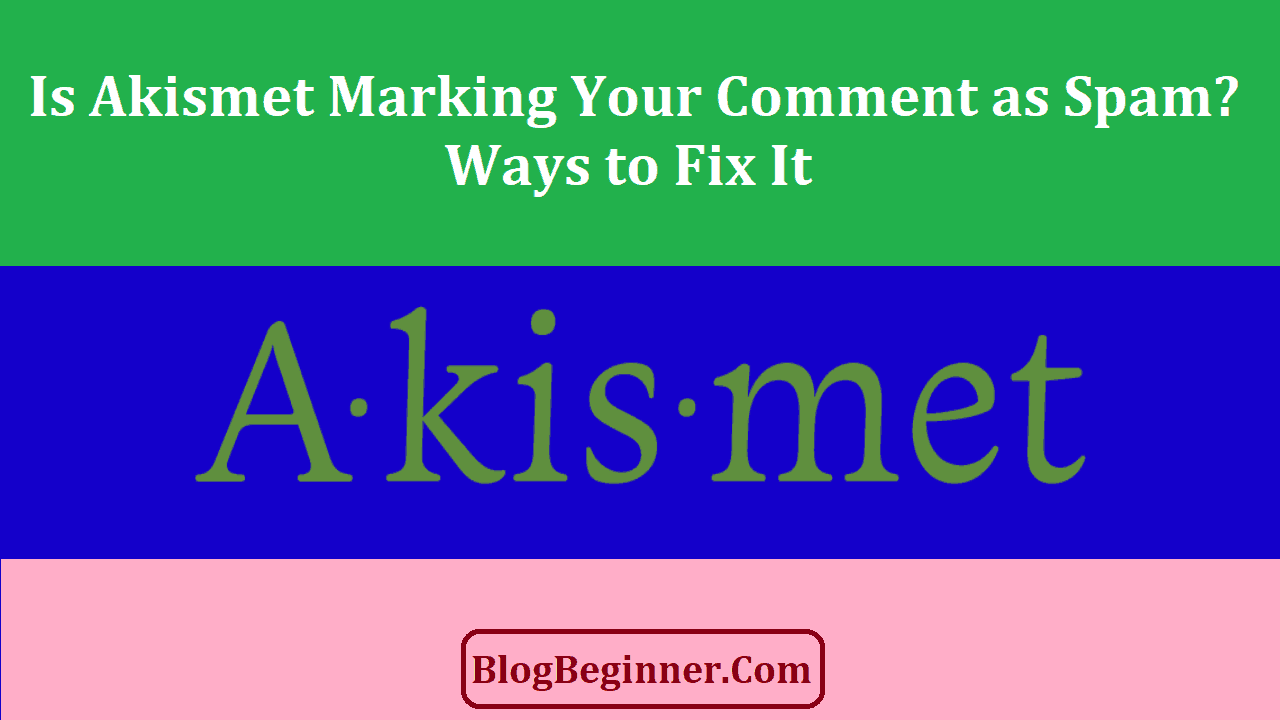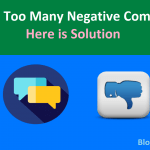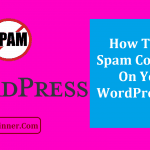Akismet is the leading plugin used by WordPress bloggers and website publishers alike in order to fight against spam comments.
It is designed to protect us from rude, irrelevant, or spam commenters, which have now become a full-fledged epidemic.
However, sometimes we fall victim to the same measures we use to help us out in the first place.
Having our comment marked as spam can be a very unpleasant and confusing experience.
What’s even worse is that it can trigger a permanent ban on our email, which can be very difficult to combat.
Is Akismet marking all your comments as spam?
Do not worry! There are a few things you could do to sort this out and clear your name.
In this article, we will show you how you can dispute an illegitimate ban. What’s more, we’ll teach you how to avoid getting blacklisted.
Contents In Page
How does Akismet work?
Akismet will harshly judge any comments with link usage, swearing, or use of irrelevant topics. It’s these qualities that make it an imperative tool for publishers.
Its complex algorithm allows the plugin to learn from its mistakes, as well as those made by its users.
For instance, when a number of sites report similar-looking comments as spam, Akismet will mark that content.
Later on, the plugin will learn to identify it as a pattern and prevent it from being posted ever again.
This, however, can sometimes backfire. What’s worse, legitimate users could be banned, and relevant content could end up getting deleted.
The best way to prevent that from happening to us is to plan ahead of time.
We should always first familiarize ourselves with the rules and guidelines of commenting on blog posts.
Does Akismet mark all your comments as spam? Here is how you can fix this
No matter how smart an algorithm is, it will almost never be flawless. Akismet saves us hours of manual comment moderation, but sometimes, we could run into some issues.
Our comments might be detected as spam by the automatic filter, and our commenting rights might get stripped away.
We should all be aware of how important it is to write meaningful comments on various relevant sites.
Not only does commenting allow us to direct traffic to our website, but it also gives us the opportunity to showcase our wits and writing style.
Consequently, when we have comments marked as spam, it is essential we handle the issue quickly and responsibly.
Here we will go through three different methods we could use to resolve the problem — getting help from a friend, receiving help from smaller blogs, and using the Akismet contact form.
1. With a little help from a friend
One of the ways we could tackle our ban is to seek the help of a friend.
If we already have an email that’s been blacklisted, then our comments will always end up in the spam folder.
However, the comment itself is still accessible, and the owner of the website would hypothetically still be able to see it.
But let’s be fair — it doesn’t happen too often that we find ourselves browsing the spam folder, right?
That’s why the first thing we should try is to contact some of our blogger friends. Our task would be to leave a few meaningful comments on their sites.
They, in turn, would have to access their spam folder in Akismet and mark our comments as “not spam.”
There are no rules as to how many people we would need to vouch for us. We should try and write to as many people as possible.
Nonetheless, it is still a very effective method to gain our commenting rights back, and it shouldn’t be too difficult to execute.
2. Asking for a helping hand
Much like the previous method, we will again need to write comments on various blogs.
However, we can’t rely on direct inbox messaging to let them know we have a problem.
We should, therefore, contact the person in charge of the blog or site through an alternative method and kindly ask for their cooperation.
Since they wouldn’t be able to see our comments, Facebook, Twitter or Linkedin profiles are just a few of the options we could try in order to reach them.
In a nutshell, this method is not foolproof and is based on luck and social interaction skills.
In this case, we might be better off looking for websites that are smaller and generate less traffic.
That way, we would quickly get the help we need.
3. Using the Akismet contact form
By far the most promising option is to write to the Akismet support team.
If we truly believe that we have been wrongfully banned from leaving comments, we can use the Akismet contact form.
It’s a simple method that would quickly bring the attention of the staff to our issue and resolve it.
In fact, this method should definitely work if we have a paid Akismet plan set up.
To send a request for the team to look into the matter, we need to visit the Akismet contact page.
There we will find a list of options, including one that says “I think Akismet is catching my comments by mistake.”
We can use the blank field provided to describe in detail what happened and to name the affected email address.
4. The alternative
Alas, if we still want to use Akismet for free, we will need to be very careful with how we write comments.
Even with all three methods, we should always try to stay away from the possibility of getting a ban.
There is an alternative, but it’s not as straightforward.
It would require our knowledge of the comment guidelines and our persistence to follow them precisely.
How to write better comments and never risk getting blacklisted
As we’ve mentioned before, the Akismet algorithm is very powerful, and it filters through millions of comments every day.
Its mission is to look for suspicious content and links that could be malicious or considered offensive. Thus, there are a few simple rules we should follow to make sure we never get banned:
-
Method 1:
One of the first rules we should set for ourselves is to never use swear words.
References to gambling, religion or any topics that may offend someone are also out of the question.
We hope this doesn’t come as a surprise, as it is sort of a general rule in the online world.
-
Method 2:
The second thing we need to keep in mind is that we should never post links on most blogs. These would include any of our social media links, websites, etc.
They can seem self-promotional and are frowned upon in most blogging communities.
This doesn’t mean we shouldn’t find ways to spread the word, but we need to be mindful.
Opportunities like that arise all the time, which makes intentional spamming unnecessary.
Also, we should refrain from using any keywords intended as self-promotion.
For example, if we mention a company name too many times, Akismet might mark our comment as spam.
-
Method 3:
We should always try to write at least two sentences in our comments. This would show our interest and prove we have an opinion on the matter.
-
Method 4:
Lastly, we need to be sincere and always try to write meaningful comments.
If we genuinely relate to a particular subject and would like to share our opinion, we should do so.
What’s more, if we make sure we write a compelling comment, it will organically bring about greater attention and a larger audience.
Help the community
Akismet is predominantly a free service. Consequently, it’s one that requires its users to put in a bit of effort every now and then.
The clever algorithm learns from all of its users, which is why every action affects how Akismet handles spam.
Our contributions may be small, but if we take one or two minutes each day to check for a “false positive,” or wrongfully marked comments as spam, we will help Akismet become a better, more reliable service.
However, if we choose to neglect our spam folder, we could easily lose our readers.
People who want to post legitimate comments on our blog posts might stop posting. Even worse, they might feel offended and never return.
Final thoughts
Akismet was created by WordPress co-founder Matt Mullenweg in 2005, with the intention of allowing his own mother to blog safely.
The plugin, however, has now become an essential part of the toolset used by bloggers and publishers.
Issues such as having your commenting rights taken away are now almost a thing of the past.
This is due to the fact the algorithm evolves and learns from its users.
Still, we might find it very tricky to remove our account from a blacklist.
Nonetheless, if we believe our comments follow the guidelines, we can easily dispute the matter.
In addition, we can help the community by checking our spam folder often and manually filtering out the legitimate commenters.





